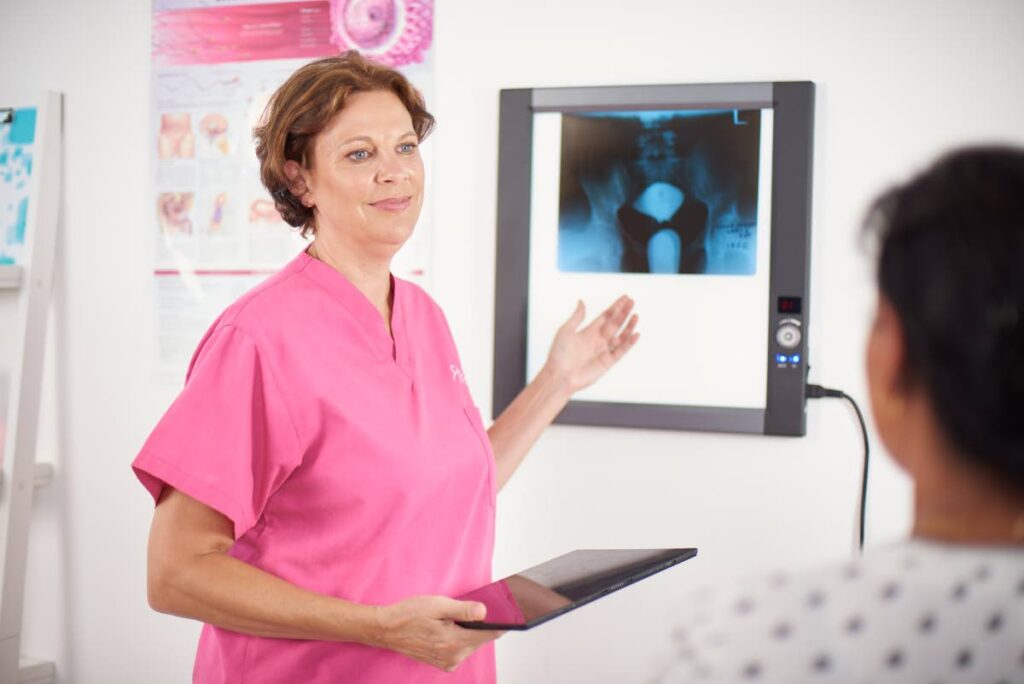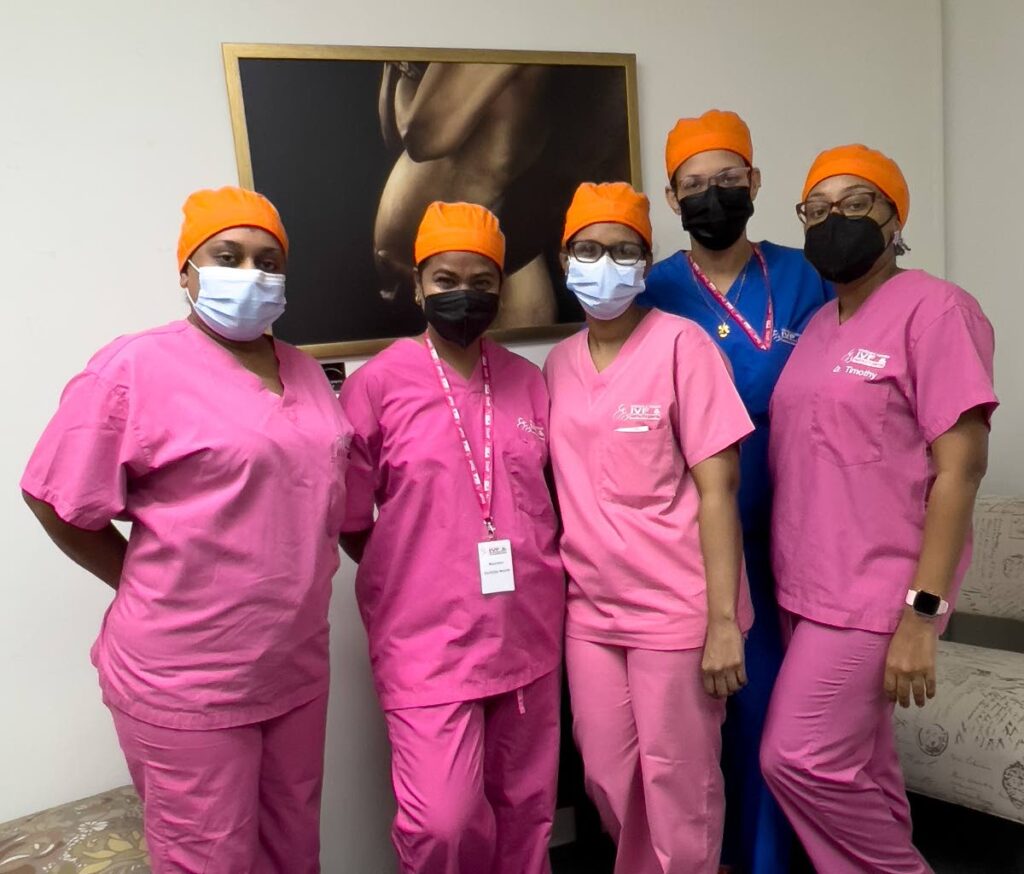Treating infertility one case at a time

Let’s talk about orange. Research shows that the colour orange promotes a sense of wellness and shared emotional energy: compassion, passion, and warmth. It’s supposed to help you to recover from a wounded heart. No surprise then that the 20-woman team at the Trinidad and Tobago IVF and Fertility Clinic were rocking their orange to mark Infertility Awareness Week 2023 – April 23-29.
“Staring down at negative pregnancy tests month after month can be soul crushing,” said founder and medical director of the clinic Dr Catherine Minto-Bain. “Infertility Awareness Week is a way to show the compassion and understanding for the thousands of people struggling with infertility.”
Infertility in TT is stigmatised – a source of shame for both men and women. Like many other countries, we just don’t talk about it.
“Infertility is a medical condition, but we attach blame and moral judgment to it,” Minto-Bain said.
“Infertility Awareness Week is our opportunity to change that conversation.”
Over decades of operation, the TTIVF Fertility Centre has kept a close eye on trends in this country. Some of their findings: About one in six people struggle to have a child, infertility isn’t a “woman problem” – more cases of infertility can be traced back to men – and we wait too long to get expert advice to help us conceive.
“Man or woman, your clock is ticking. Fertility starts to decline after 35 for women, and gradually for men in their 30s and 40s,” Minto Bain said.
“People wait too long, partly because they just don’t know that after a certain age their eggs or sperm are less likely to make a baby, but also because they waste time trying all sorts of tisanes, herbs and supplements that just don’t help. So by the time they get to us, they’ve lost precious time.”

Minto Bain and her team have seen more than 10,000 patients and they’ll tell you that Caribbean women have unique fertility challenges. Women of East Indian descent are more likely to have polycystic ovaries syndrome and possibly endometriosis, while women of African descent are more likely to go through early menopause and run out of eggs in their early 40’s.
“It’s definitely not the same in other countries. We are very diverse, and understanding that diversity is key to successful treatment of infertility.”
Minto-Bain said TTIVF has quietly brought more than 2,700 healthy babies into the world through medical interventions like in vitro fertilisation (IVF) and intra uterine insemination (IUI). The first IVF baby in the English Caribbean (a boy) was born in TT in 1997 with TTIVF's help. She and her staff have gone on to break new ground ever since then, with the Caribbean’s first IVF frozen embryo baby and first egg donor baby in 2001.
TTIVF is also the first fertility clinic in the region to be internationally accredited, opting for European accreditation where the standards are punishingly rigorous.
“European accreditation agencies are very strict about patient confidentiality, and so are we. We protect our patients. We don’t publish pictures of our babies and we never ask patients to speak publicly while they’re going through infertility treatment. It’s an emotionally fraught time and it would be just unethical,” Minto-Bain said. Some patients do choose to speak out, however, often in the hopes of breaking down the walls that make infertility taboo.
"Dr Catherine," as her patients fondly call her, said there are at least 19 different ways to have a baby with a little help from science, and they’re all available in TT, with expert medical supervision every step along the fertility journey.
IUI and IVF are the top two treatments that the clinic uses to help patients conceive. There are many variations on those procedures: A woman can use her own eggs and her partner’s sperm, or donor sperm, or donor eggs.
“But everyone assumes they’ll need to have expensive treatments. That’s wrong! The truth is that many of our patients get pregnant with simpler, less expensive treatments. We try to find the treatment that’s best for you, we don’t put you on an IVF conveyor belt. There are surprisingly small things we can do, treating medical conditions that affect fertility, an underactive thyroid, for example.
“Sometimes all we have do is give you the right egg-growing medication, or give you trigger injections to make your eggs release. The key is knowing what to do and when, and really making the patient’s needs your priority.”
It’s emotionally draining work, but the clinic team – fertility doctors and nurses and the team of women who manage the logistics of the patient’s road to parenthood – have found ways to support each other. “BFP is what makes it all worthwhile," Minto-Bain said.
"What’s that? Well, a big fat pregnancy of course!"

Comments
"Treating infertility one case at a time"